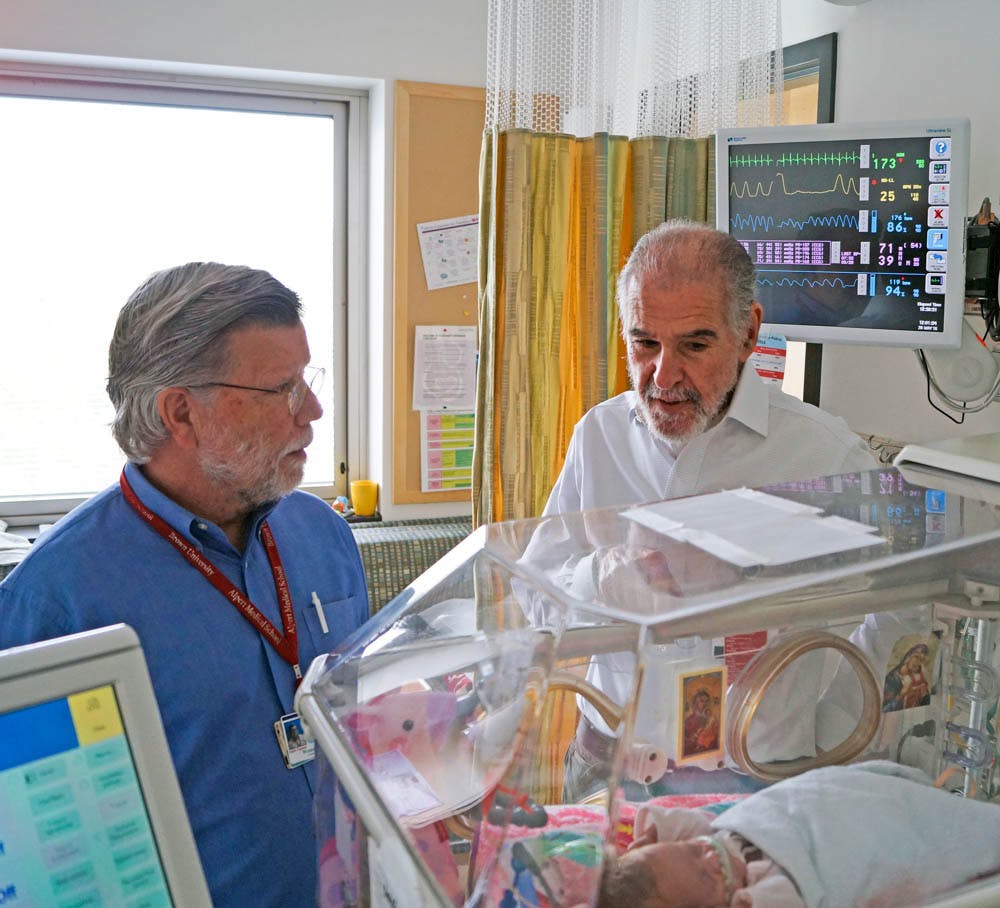The National Institutes of Health’s Environmental influences on Child Health Outcomes program awarded grants last week to projects across the United States, three of which involve the work of Brown faculty members. ECHO projects use data on a group of subjects over an extended period of time to analyze how environmental and genetic factors affect overall child development, according to the NIH website.
One of the projects spearheaded by a Brown faculty member studies the influence of a host of factors — including early nutrition, socioeconomic status and exposure to neurotoxins and pollutants — on brain development, said Sean Deoni, adjunct assistant professor of engineering. Deoni also serves as an associate professor of radiology at the University of Colorado at Denver and will be leading the study from there, he said.
Past studies have only looked at the effects of a single risk factor, but this project studies a combination of risk factors because “no one’s exposed to these (factors) one at a time,” said Joseph Braun, assistant professor of epidemiology. This comprehensive approach would allow medical professionals to “treat people more holistically” and understand how certain conditions lead to disorders, he added.
“We’re looking at almost everything, from womb to tomb,” Deoni said. The study “encompasses everything you might not think of as being a traditional environmental influence.”
The researchers have been following a group of approximately 180 children since they were 22 weeks in gestation, and the ECHO grant will enable the researchers to continue the study until the kids are seven to eight years old, Deoni said. The study will include neuropsychological tests and examination of saliva and stool for genetic and microbiological information. Researchers will also analyze hair samples for cortisol levels, which are an indication of stress.
The team, as part of a “multidisciplinary and multi-institutional” effort, will also pool data with 34 other research teams. Together, they are collecting information on about 50,000 children across the country, Braun said.
Another team awarded an ECHO grant will study environmental factors affecting infants that are born “very preterm,” or with fewer than 30 weeks in gestation, said Barry Lester, professor of psychiatry and human behavior and principal investigator of the project. These children have a 20 to 40 percent chance of developing serious cognitive or physical impairments by the time they are two years old, he said. By creating and administering a neurobehavioral exam at birth that aims to predict potential problems, the team hopes to develop individualized interventions that can “prevent or mitigate these long-term impairments,” Lester said.
Prior to receiving the initial $4.9 million ECHO grant, Lester and his team were following a group of 700 infants at the Women and Infants Hospital in downtown Providence and had just finished examining the newborns, he said. The ECHO grant will extend the study so that the team can follow the children until they reach age seven. It also combines their efforts with seven other hospitals examining preterm infants, Lester added.
The third grant allows University researchers to participate in the Institutional Development Awards program, called the IDeA States Pediatric Clinical Trials Network. The NIH awarded a $1.87 million grant to the Rhode Island Hospital, where the project will be led by Phyllis Dennery, chair of the pediatrics department, and Sylvia Kay Hassenfeld, professor of pediatrics.
The Rhode Island Hospital was one of 17 sites selected for the IDeA program, which will enroll patients in clinical trials that examine various areas of interest, such as obesity, behavioral health, respiratory problems or other issues that commonly affect children, Dennery said. The team hopes to study a variety of patient populations, including underprivileged children and ethnic minorities, she added.
The process of planning the study is underway, and the IDeA steering committee will meet in November in Washington, D.C. to discuss project details, Dennery said.





